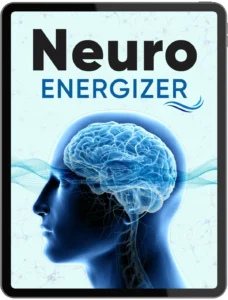Joint pain, stiffness, and reduced mobility are challenges many people face as they age or deal with conditions like arthritis. For millions, joint supplements have become part of their daily wellness routine, offering hope for reduced discomfort and improved flexibility. But while short-term benefits are well-documented for some ingredients, the bigger question remains: how safe are long-term joint supplements, and what should you monitor if you plan to use them daily for years?
In this article, we’ll explore the potential risks and benefits of prolonged supplement use, what science currently says, and practical tips to ensure you’re protecting your health while supporting your joints.
Why People Turn to Joint Supplements
Joint supplements are popular because they provide a natural, non-invasive option for managing discomfort. Instead of relying solely on pain relievers, many prefer to use nutritional support that targets the underlying causes of stiffness and inflammation. Common reasons people use them include:
- Supporting cartilage health and repair
- Reducing inflammation and stiffness
- Improving mobility and flexibility
- Delaying progression of age-related joint wear
- Supporting overall quality of life
For people with osteoarthritis, athletes, or those with physically demanding jobs, supplements often seem like a safer, long-term choice compared to regular pain medication.
Common Ingredients in Joint Supplements
Before evaluating long-term safety, it’s important to understand what’s typically inside these products. The most common ingredients include:
- Glucosamine – Supports cartilage structure and may slow degeneration.
- Chondroitin sulfate – Often paired with glucosamine to improve elasticity of cartilage.
- MSM (Methylsulfonylmethane) – A natural sulfur compound linked to reduced inflammation.
- Collagen peptides – Building blocks for cartilage, ligaments, and connective tissue.
- Turmeric (curcumin extract) – A natural anti-inflammatory compound.
- Boswellia serrata – An herbal extract with potential joint-soothing effects.
- Omega-3 fatty acids – Reduce systemic inflammation and support joint fluidity.
- Hyaluronic acid – Improves lubrication within the joints.
Each of these ingredients has been studied to varying degrees. Some, like glucosamine and chondroitin, have decades of research, while others, such as herbal extracts, have promising but less comprehensive evidence.
The Safety of Long-Term Joint Supplement Use
Most joint supplements are considered safe for long-term use when taken at recommended dosages. However, “safe” doesn’t mean free of potential risks. Long-term consumption should be carefully monitored for the following reasons:
1. Possible Interactions with Medications
If you’re taking prescription drugs—especially blood thinners, diabetes medications, or anti-inflammatory drugs—some joint supplements may interact and either reduce effectiveness or increase risk of side effects.
For example:
- Glucosamine may affect blood sugar control.
- Chondroitin could increase bleeding risk when combined with anticoagulants.
- Herbal extracts like turmeric or boswellia may enhance blood-thinning effects.
2. Digestive Discomfort
Some users report bloating, nausea, or diarrhea after long-term use. While these are usually mild, persistent digestive issues may signal that your body isn’t tolerating certain ingredients well.
3. Contamination Concerns
Not all supplements are created equal. Poorly regulated products may contain contaminants like heavy metals, fillers, or allergens. Over years of daily intake, these risks accumulate if you’re not choosing reputable brands.
4. Overconsumption Risks
More isn’t always better. High doses of certain compounds—such as MSM or herbal extracts—can stress the liver or kidneys. Using multiple joint supplements simultaneously also increases the risk of excessive intake.
5. Limited Long-Term Studies
While short-term trials often confirm safety, fewer studies track decades of continuous use. That means some risks may only become apparent after prolonged exposure.
What You Should Monitor if Taking Joint Supplements Long-Term
If you rely on supplements for ongoing joint support, here are smart steps to ensure safety:
1. Regular Blood Tests
Ask your doctor to include liver function, kidney function, and blood sugar checks during routine exams. This helps identify any silent problems before they become serious.
2. Track Symptoms
Keep a journal of joint pain levels, mobility, energy, and any side effects. If your symptoms worsen or new issues appear, reevaluate your supplement routine.
3. Evaluate Effectiveness
After 3–6 months of use, ask yourself: Is this supplement making a measurable difference? If not, it may not be worth the cost or potential long-term risks.
4. Rotate and Adjust
Instead of taking the same supplement indefinitely, consider rotating ingredients or taking short breaks to prevent unnecessary strain on your system.
5. Choose Trusted Brands
Look for products that are:
- Third-party tested for purity and potency
- Manufactured under GMP (Good Manufacturing Practices) standards
- Transparent about ingredient sourcing and dosages
6. Consult Your Doctor
Especially if you’re over 50, have chronic conditions, or take multiple medications, always involve your healthcare provider in supplement decisions.
Signs It’s Time to Reconsider Your Supplement Routine
Even if a supplement has worked for months or years, pay attention to warning signs such as:
- Unexplained fatigue or weakness
- Digestive upset that persists
- Swelling in the hands, feet, or ankles
- Unexpected changes in blood sugar or blood pressure
- No noticeable benefit after consistent use
These signals don’t necessarily mean supplements are harmful, but they warrant a medical check-up.
Are Natural Supplements Safer Than Pharmaceuticals?
Many people assume that “natural” equals “safe,” but this isn’t always the case. Herbs and natural compounds can still cause side effects, interactions, or organ strain over time. The difference is that unlike prescription drugs, supplements often lack strict long-term testing.
That said, for individuals who cannot tolerate daily NSAIDs (like ibuprofen) due to stomach or cardiovascular risks, supplements may still be a gentler long-term option—provided they are chosen wisely and monitored carefully.
The Bottom Line: Safety with Awareness
So, how safe are long-term joint supplements? For most healthy adults, they are generally safe when used at proper dosages and sourced from reputable brands. However, “generally safe” doesn’t mean risk-free. The real key lies in monitoring your health, working with your doctor, and making adjustments as needed.
Joint health is a marathon, not a sprint. Supplements can play an important role in maintaining mobility and comfort—but they should be part of a larger strategy that includes exercise, a nutrient-rich diet, weight management, and regular medical care.



